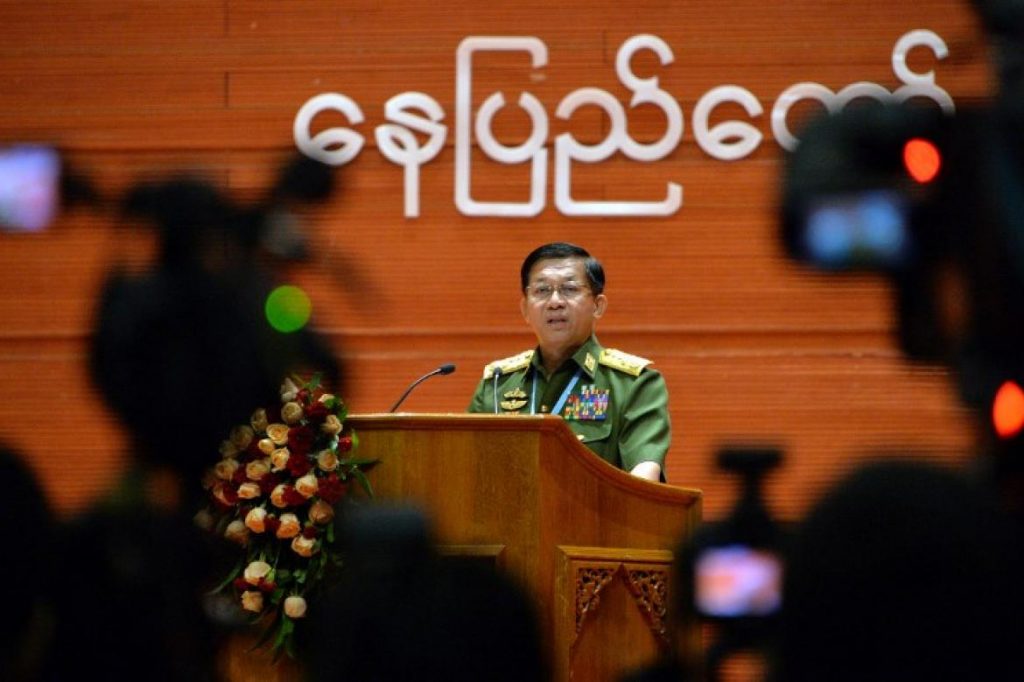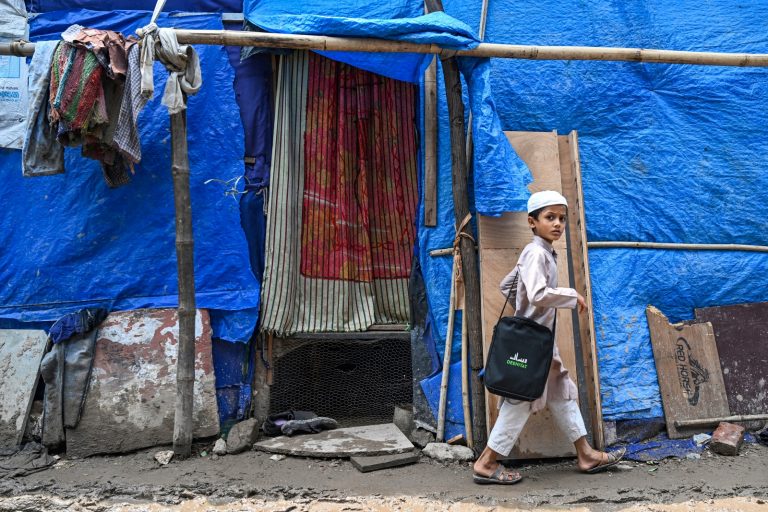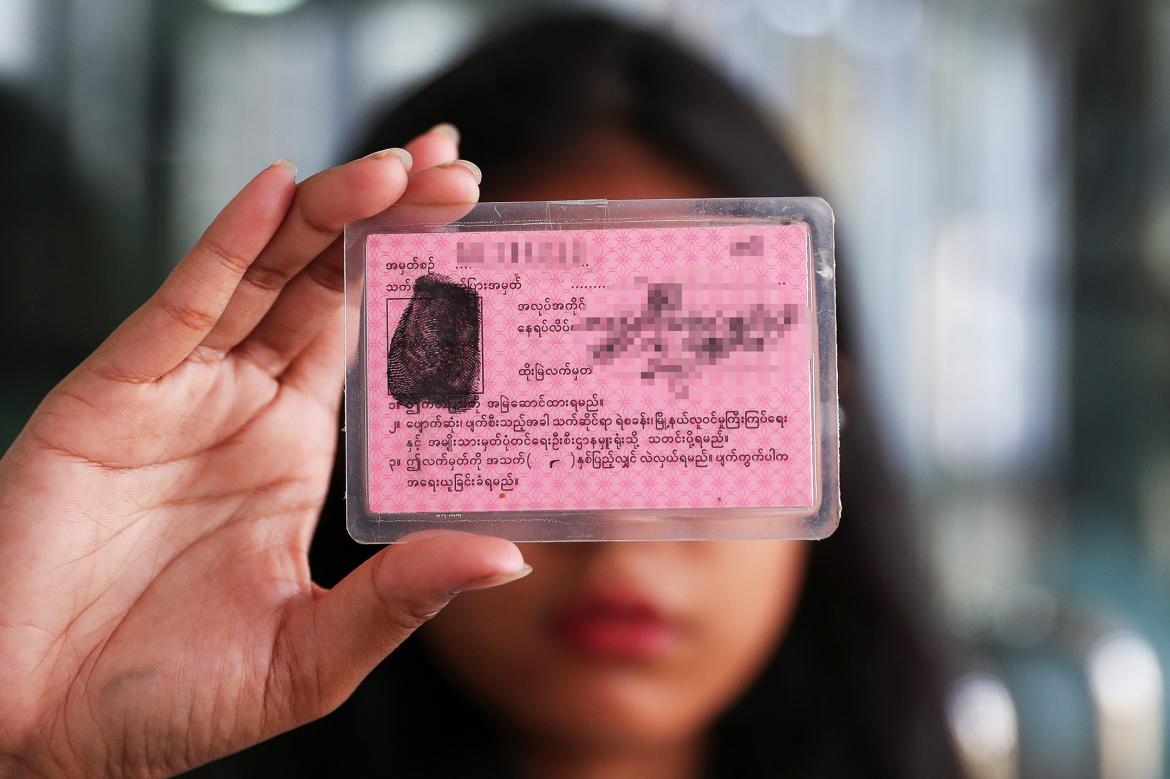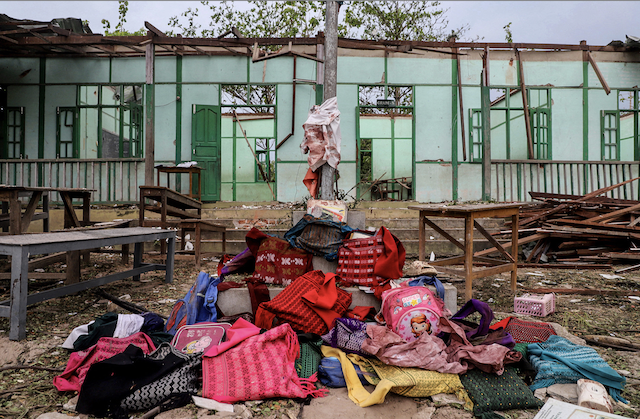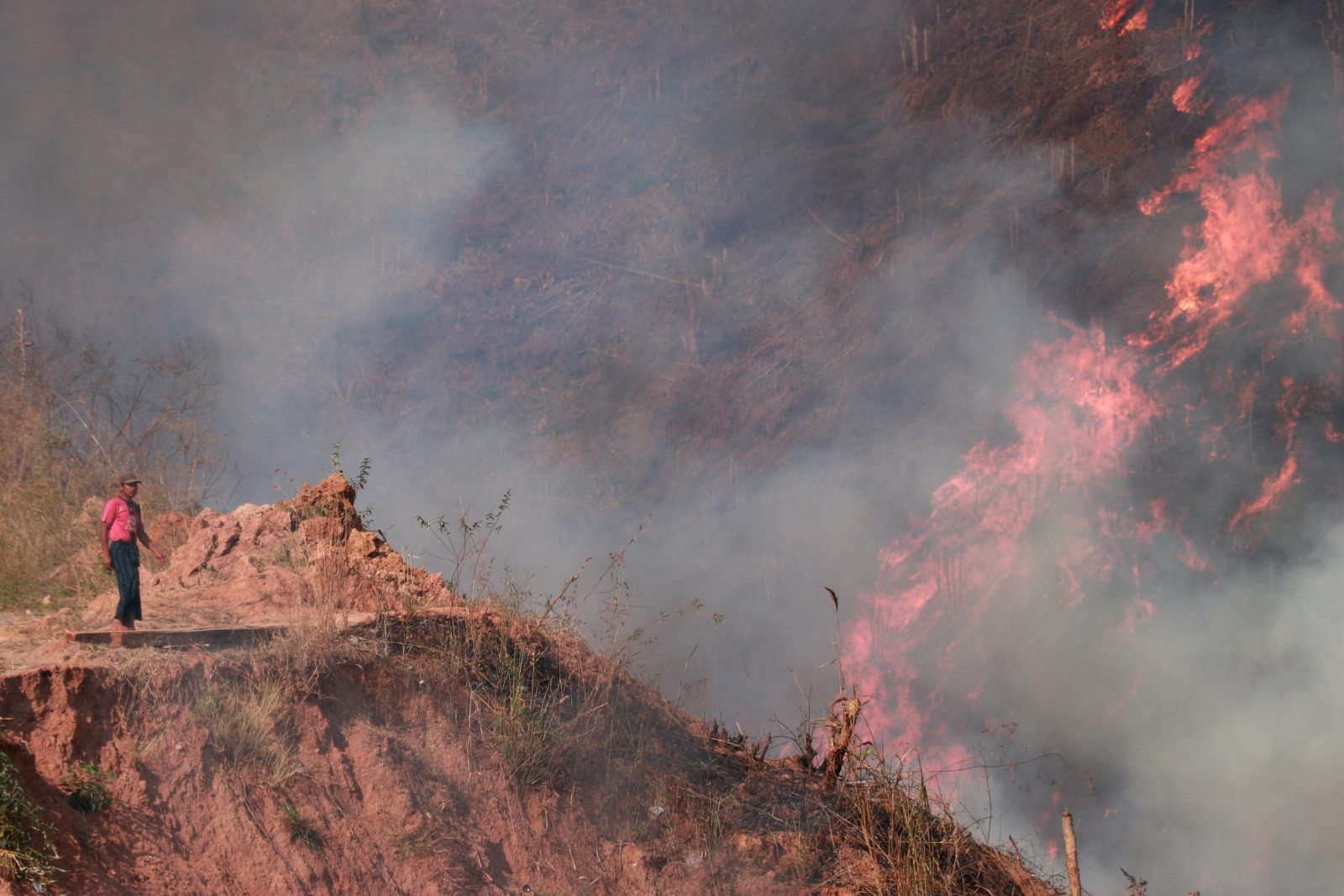By FRONTIER
YANGON — A United Nations panel that investigated “horrifying” human rights violations in Rakhine, Kachin and Shan states has called for the restructuring of the Tatmadaw, including replacing its current leadership.
The recommendation is one of more than 50 in the final report of the Fact-Finding Mission on Myanmar appointed by the UN Human Rights Council in March 2017.
The release of the 444-page document in Geneva on September 18 came after an interim report issued in late August said the FFM had concluded that human rights abuses in Myanmar since 2011, when a ceasefire collapsed in Kachin State, amounted to the gravest crimes under international humanitarian law.
The interim report called for Tatmadaw Commander-in-Chief, Senior General Min Aung Hlaing, and other senior officers to be investigated for genocide over the “clearance operation” in northern Rakhine State late last year that sent about 700,000 Rohingya fleeing to Bangladesh.
Support more independent journalism like this. Sign up to be a Frontier member.
The latest report called on the government to act “without delay” to transform the Tatmadaw and to begin a constitutional reform process aimed at removing the military from the country’s political life.
It said gross human rights violations and abuses committed in Kachin, Rakhine and Shan states were “shocking for their horrifying nature and ubiquity” and for “the level of denial, normalcy and impunity that is attached to them”.
It said the actions of the Tatmadaw in the three states, and particularly the clearance operations in northern Rakhine in 2016 and 2017 “have so seriously violated international law that any engagement in any form with the Tatmadaw, its current leadership, and its businesses, is indefensible”.
The FFM said engagement with the Tatmadaw should only be considered when a complete restructuring has begun. It said the Tatmadaw’s current leadership should be replaced and extensive reform undertaken to place it under full elected civilian control and oversight and to remove it from Myanmar’s political and economic life.
The report warned that Myanmar risked destroying its democratic reform process unless it remedied the “human rights crises” in the country.
It said the international community also bore responsibility and must take a united stand to both condemn violations and help Myanmar to address the root causes of recurrent problems.
“This begins by ensuring that the perpetrators of crimes are held to account, and by giving hope to victims of a future without the fear and insecurity that have characterized their existence,” it said.
It recommended that the government halt all current military and security operations that are unlawful, unnecessary or disproportionate, “especially where they target civilians or take insufficient precaution to safeguard their wellbeing”.
It also calls on the government to acknowledge the role of the Tatmadaw and other security forces in the perpetration of gross human rights violations, including sexual and gender-based violence and grave violations against children.
The government should also issue clear, public and unequivocal instructions to the Tatmadaw and other security forces that torture, rape, sexual violence, grave violations against children and other human rights violations are prohibited absolutely.
Another recommendation calls for the government to permit and facilitate free and unfettered access to all parts of Myanmar – especially Kachin, Rakhine and Shan states and other conflict and crisis areas – to national and international humanitarian organisations to provide relief and for journalists and national and international human rights monitors to investigate and report on human rights compliance.
It urged the government to end all harassment and prosecution of human rights defenders, lawyers, journalists, peace campaigners, democracy activists and other members of civil society, so they may peacefully exercise their rights to freedom of expression, association and assembly.
It further recommends that the government release and pardon all political prisoners, and that it pardon and release Reuters journalists Ko Wa Lone and Ko Kyaw Soe Oo, who have been sentenced to seven years’ imprisonment for breaching the 1923 Official Secrets Act.
Recommendations on Rakhine called on the government “to suspend the citizenship verification process based on the 1982 Citizenship Law, acknowledge the arbitrary deprivation of nationality of the Rohingya community and restore their citizenship rights through a speedy administrative process developed through meaningful consultation with the Rohingya community”.
The report also called for the government to ensure that the repatriation of Rohingya and other refugees is safe, dignified and voluntary, that adequate human rights standards are in place and that refugees are expressly permitted to return to their places of origin and to receive reparation for losses and support to rebuild their lives.
On human rights compliance, the report recommended that the government ratify the Rome Statute under which the International Criminal Court was established.
The court said early this month it had jurisdiction to probe the crisis in northern Rakhine because of the cross-border nature of alleged “deportations” of Rohingya to ICC-member Bangladesh, a decision that Myanmar has “resolutely rejected”
In her first address to the UN Human Rights Council on September 10, UN High Commissioner for Human Rights Ms Michelle Bachelet called for a “mechanism” to prepare criminal indictments over atrocities in Rakhine.
She urged the council to create “an independent international mechanism for Myanmar, to collect, consolidate, preserve and analyse evidence of the most serious international crimes, in order to expedite fair and independent trials in national and international courts”.
Speaking at the Human Rights Council today after the report was released, Myanmar’s ambassador to the UN in Geneva, U Kyaw Moe Tun, rejected it as “one-sided”, reports said.


